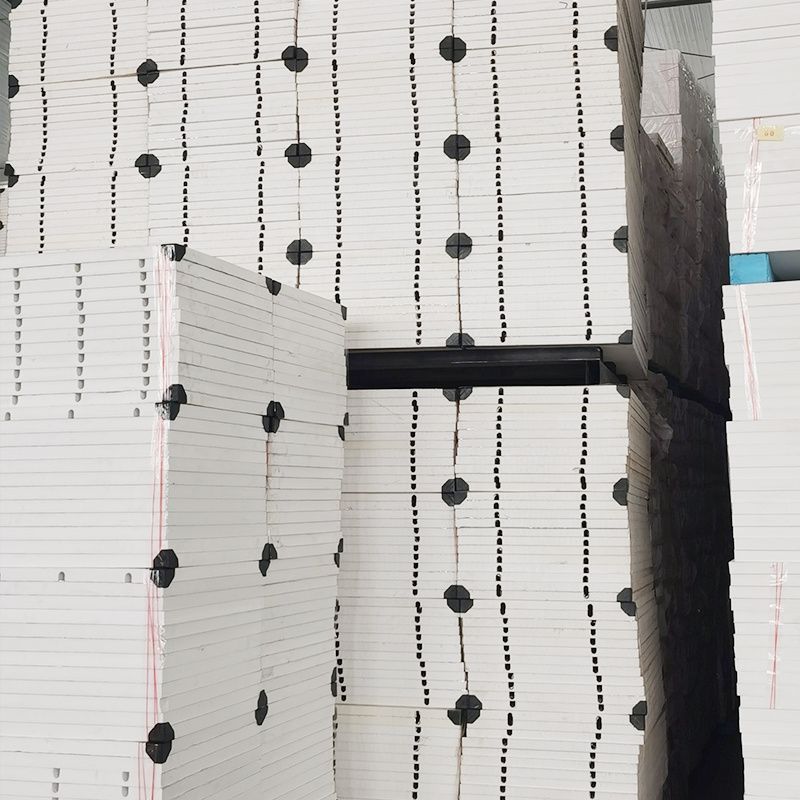Why SEPS Pipe Insulation is Essential for Chemical Safety
May 24,2025

Why SEPS Pipe Insulation is Essential for Chemical Safety
Understanding SEPS Pipe Insulation
SEPS (Styrene Ethylene Butylene Styrene) pipe insulation is a specialized material designed to enhance the safety and efficiency of chemical processing systems. Its unique properties make it particularly suitable for environments that involve hazardous substances. The following sections will provide an in-depth look at the reasons why SEPS pipe insulation is crucial for maintaining chemical safety.
The Importance of Chemical Safety in Industrial Operations
Chemical safety is a paramount concern within industries that handle hazardous materials. The consequences of insufficient safety measures can lead to catastrophic incidents, including explosions, toxic leaks, and environmental damage. Therefore, employing advanced technologies and materials like SEPS pipe insulation is essential to mitigate these risks.
Why Choose SEPS for Pipe Insulation?
SEPS offers numerous advantages over traditional insulation materials. The following factors highlight why SEPS should be the go-to choice for pipe insulation in chemical facilities:
1. Superior Thermal Performance
SEPS insulation is known for its excellent thermal resistance. By maintaining optimal temperatures, it minimizes energy consumption while protecting sensitive chemicals from temperature fluctuations that could lead to reactions or degradation.
2. Chemical Resistance
One of the standout features of SEPS is its impressive resistance to a wide array of chemicals. This characteristic is crucial in environments where pipe insulation is regularly exposed to corrosive substances. SEPS ensures that the integrity of the insulation is maintained, thereby enhancing safety.
3. Flexibility and Ease of Installation
The flexibility of SEPS makes it easy to install around various pipe diameters and shapes. This adaptability not only simplifies the installation process but also ensures that there are minimal gaps, which can be potential points of failure in traditional insulation methods.
Key Benefits of Using SEPS Pipe Insulation
Utilizing SEPS pipe insulation brings multiple benefits to chemical safety and operational efficiency. Here are some key advantages:
Enhanced Safety Measures
Safety is non-negotiable in any chemical processing operation. By employing SEPS pipe insulation, companies can significantly reduce the risk of chemical spills and leaks. The insulation acts as a barrier, preventing external environmental factors from compromising the chemicals within the pipes.
Cost-Effectiveness
While the initial investment in SEPS insulation might be higher than standard materials, the long-term savings are undeniable. Enhanced energy efficiency, reduced maintenance, and lower risk of hazardous incidents contribute to substantial cost savings over time.
Improved Operational Efficiency
By maintaining stable temperatures, SEPS pipe insulation helps optimize the performance of chemical processes. This stability can lead to improved production rates and higher quality outputs, ultimately benefiting the bottom line.
Installation Techniques for SEPS Pipe Insulation
Effective installation is crucial to realizing the benefits of SEPS pipe insulation. Here are some recommended techniques to ensure proper application:
1. Surface Preparation
Before applying SEPS insulation, it is essential to prepare the pipe surface adequately. This involves cleaning the pipe to remove any dust, rust, or residues that could affect adhesion.
2. Measurement and Cutting
Accurate measurement and cutting of the SEPS material are vital. The insulation should fit snugly around the pipes to prevent any thermal bridging or gaps, which could compromise insulation effectiveness.
3. Sealing and Securing
Once the SEPS insulation is applied, sealing the joints and seams with appropriate adhesive or tape is crucial. This step ensures that the insulation remains intact and maintains its performance over time.
Maintenance of SEPS Pipe Insulation
To maximize the lifespan and efficiency of SEPS pipe insulation, regular maintenance is necessary. Here are some best practices:
Routine Inspections
Conduct periodic inspections to check for any signs of damage or wear. Early identification of potential issues can prevent costly repairs and ensure ongoing safety.
Cleaning Procedures
Maintaining clean insulation surfaces is essential for optimal performance. Regular cleaning helps preserve the integrity of the insulation and prevents buildup that could lead to chemical reactions.
Addressing Damage Promptly
In the event of damage, it’s crucial to address repairs immediately. This may involve replacing sections of insulation or applying additional protective measures.
Environmental Considerations and Sustainability
In today's environmentally conscious world, sustainability is a major factor in material selection. SEPS pipe insulation contributes positively to environmental efforts in several ways:
1. Energy Efficiency
By minimizing heat loss, SEPS insulation helps reduce overall energy consumption in industrial operations. Lower energy use not only saves money but also reduces the carbon footprint of chemical processing.
2. Reduced Chemical Spills
The integrity of SEPS insulation helps prevent chemical spills, which can have devastating effects on local ecosystems. By ensuring that chemicals remain contained, SEPS contributes to a cleaner, safer environment.
FAQs about SEPS Pipe Insulation and Chemical Safety
1. What makes SEPS pipe insulation different from traditional materials?
SEPS offers superior thermal performance, flexibility, and chemical resistance, making it a more suitable choice for industries dealing with hazardous materials.
2. Is SEPS insulation suitable for high-temperature applications?
Yes, SEPS pipe insulation can withstand high temperatures, making it ideal for various applications in chemical processing.
3. How does proper installation impact the effectiveness of SEPS insulation?
Proper installation ensures that there are no gaps or thermal bridges, which could lead to energy loss and reduced safety. It is essential for maximizing the insulation's benefits.
4. Can SEPS insulation be used on all types of pipes?
SEPS is versatile and can be used on various pipe types, including metal, plastic, and PVC, making it suitable for diverse industrial applications.
5. What are the long-term benefits of investing in SEPS pipe insulation?
Long-term benefits include enhanced safety, cost savings from reduced energy use and maintenance, and improved operational efficiency.
Conclusion
Incorporating SEPS pipe insulation into chemical processing operations is not merely a choice; it is a necessity for ensuring safety, efficiency, and environmental responsibility. As industries continue to evolve, prioritizing the use of high-quality insulation will safeguard against the inherent risks associated with handling hazardous chemicals. By understanding the benefits, installation techniques, and maintenance of SEPS insulation, organizations can greatly enhance their operational integrity and contribute to a safer working environment.
Contact Us
Company:Sunjoy (Tianjin) Tecnology Go.,Ltd
General Manager: White Eric
Email: admin@sunjoy-rockwool.com
Wechat: +86 18002010981
Tel: +86 4009950775
Address: Room 1002, Juding Buliding, Jinnan District, Tianjin.china


